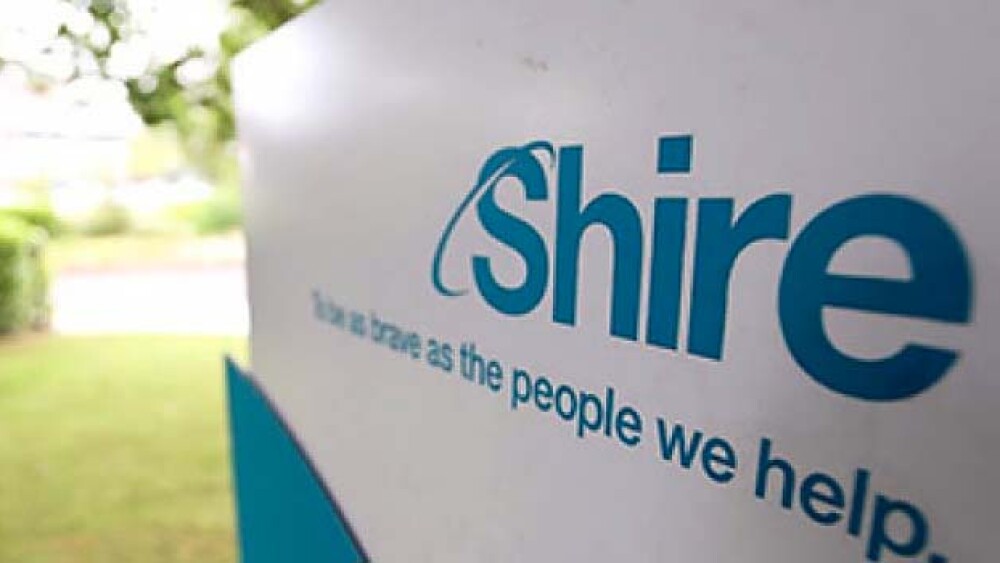Dublin-based Shire agreed to be acquired by Japan-based Takeda Pharmaceutical, with both boards approving the deal.
Dublin-based Shire agreed to be acquired by Japan-based Takeda Pharmaceutical, with both boards approving the deal.
In late March, Takeda expressed an interest in acquiring Shire, although at that time no official bid had been made. Per UK law, Takeda had to make an official offer by 5:00 p.m. (London time) on April 25, 2018. On April 19, Takeda made an official bid of about $66.20 (U.S.) per share, which had a value of around $60 billion (U.S.). Shire rejected the bid, arguing that it undervalued the company.
Shortly afterwards, Allergan, was reportedly in talks to acquire Shire, but several hours later, Allergan announced it was no longer interested. On April 20, Takeda raised the bid.
During this period, Shire sold its oncology business to France’s Servier for $2.4 billion. Oncology was a small part of Shire’s portfolio, bringing in about $262 million in 2017. The sale was unrelated to the Takeda acquisition bid and had been ongoing since the beginning of the year.
Overall, it appears Takeda made five public bids for Shire. Under the terms of the deal, Takeda will buy Shire for about 46 billion pounds, or $62.2 billion (U.S.). That is about $66.22 per share, made up of $30.33 per share in cash and 0.839 shares of Takeda stock. The deal is expected to close in the first half of 2019.
The $62.2 billion figure does not include Shire’s debt. Including that debt, the acquisition is closer to $80 billion, according to Dealogic. It is the largest takeover deal by a Japanese company.
“Shire’s highly complementary product portfolio and pipeline, as well as experienced employees, will accelerate our transformation for a stronger Takeda,” Christophe Weber, Takeda’s chief executive officer, said in a statement. “Together, we will be a leader in providing targeted treatments in gastroenterology, neuroscience, oncology, rare diseases and plasma-derived therapies.”
The combined companies will have headquarters in Japan. Takeda shareholders will own about 50 percent of the merged companies. The two companies will have a combined workforce of about 52,000 people worldwide. The companies have projected job cuts of 6 to 7 percent. That would mean cuts somewhere in the low to mid 3,000s. In addition, Takeda is considering consolidating Shire’s operations into its own in Boston, Switzerland and Singapore.
CNN notes, “The price tag has alarmed investors in Takeda: Its shares are down 18 percent since it first revealed it was considering an approach for Shire in late March. The Japanese company has a market value of just $33 billion, stoking fears about how much debt it will have to take on to fund the acquisition. Takeda is offering Shire shareholders a mixture of cash and stock.”
However, Shire stock prices have rocketed more than 30 percent since late March.
The deal will provide Takeda more access to the U.S. market. Shire’s will gain more exposure in Japan and emerging markets. Shares of both companies have risen today at the news.
It is possible that after the deal closes, Takeda may sell off some of Shire’s assets. Weber said in a statement, “There is 25 percent (of the portfolio) which is more isolated products. Some are doing very well, some less well. That’s where you could have some portfolio assessment and potentially some disposals.”
The Japanese company also indicated that acquisition would allow for “significant recurring cost synergies.” There is expected savings of approximately $600 million in duplicated research-and-development costs and potential overall savings of $1.4 billion by the third year.
Fumiyoshi Sakai, an analyst with Credit Suisse, said in a statement, “The cost synergies seem to be much bigger than expected in the next three years.”
The deal will require a positive vote of 75 percent of Shire’s voting shareholders. Dan Mahoney, fund manager for Polar Capital, told Reuters, “I think it is a good deal for Shire shareholders but not everybody may think that. However, the risk is that if shareholders vote this down then the shares are going to go down a lot.”
Weber told reporters, “Their board and our board is confident that both shareholders will see the benefit of the acquisition.”





